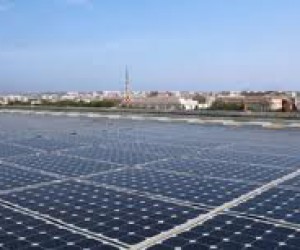With massive international pressure on the industry, the South African automotive market is being squeezed to optimise their systems to supply consumers in a more cost-effective manner. Energy Efficiency through transforming industrial energy usage is one way to achieve this.
“Automotive brands in South Africa are not only competing against each other anymore, they are competing against automotive industries in other countries. As a whole, the industry is becoming increasingly global,” says Alf Hartzenburg, National Project Manager for The Industrial Energy Efficiency (IEE) Project.
The IEE Project, an initiative implemented by the National Cleaner Production Centre (NCPC-SA) and United Nations Industrial Development Organization (UNIDO), aims to promote energy efficiency and increase competitiveness in the manufacturing sector. This can all be achieved by transformation of industrial energy usage practices, and as a result, reducing carbon-dioxide emissions and pressure on the already strained energy resources. This naturally has an impact on energy efficiency practices in terms of monetary and environmental benefits.
The question then for the automotive sectorarises: how can we achieve these goals without incurring massive costs? And, more importantly, how can we remain competitive in this pressurised environment?
The IEE Project claims that this is rather simple, just by working smarter.
Time and again energy efficiency within this industry has been relatively cost effective, while having a positive effect on productivity. The automotive sector is one of the highest users of energy and resources and can no longer ignore the importance of working smarter.Energy efficiency is the key to this.
This can be accomplished by implementing an energy management system that combines soft issues such as behaviour change, education, knowledge sharing and other low-cost and systematic interventions.Only with a holistic approach to the challenges faced within the manufacturing plants can energy efficiency truly become cost effective and show significant results.
Two notable component manufacturers in the industry have worked closely with the IEE Project to implement some of the interventions mentioned above, and through innovative implementation have managed to realise significant return on the investment in efficiency programs.
Johnson Matthey South Africa successfully managed to save an energy equivalent of R7.7 million in their first year of implementation in 2012. Further to this, in 2014, became only one of three automotive manufacturing plants to attain the ISO/SANS 50001 certification along with Tenneco Ride Performance and Tenneco Clean Air.
It is noteworthy that ISO 50001 is the only certification that requires both compliance with the standard and continuous improvement in energy performance, as well as directly impacting on a company’s bottom line as it aims to reduce overall operating cost by driving down energy costs.
Further evidence of the impact of the IEE Project's being implemented in industry includes:
• Energy savings totalling 571 GWh in 54 industry plants since 2011, with savings currently valued at R344 million; and
• R111 million’s worth of potential energy savings identified through energy audits in 230 SME plants - 12% of these savings (R 14 million) were identified in the automotive sector.
These savings are just some of the numerous positive statistics available.
In the interest of inviting participation in the project and further benefiting the automotive sector, the IEE Project will be hosting a free workshop on the benefits of implementing an ISO 50001 based energy management system in an automotive plant, with case studies from industry success stories.
Join the IEE Project at SA Automotive Week on 14 October 2014, at Gallagher Convention Centre.










